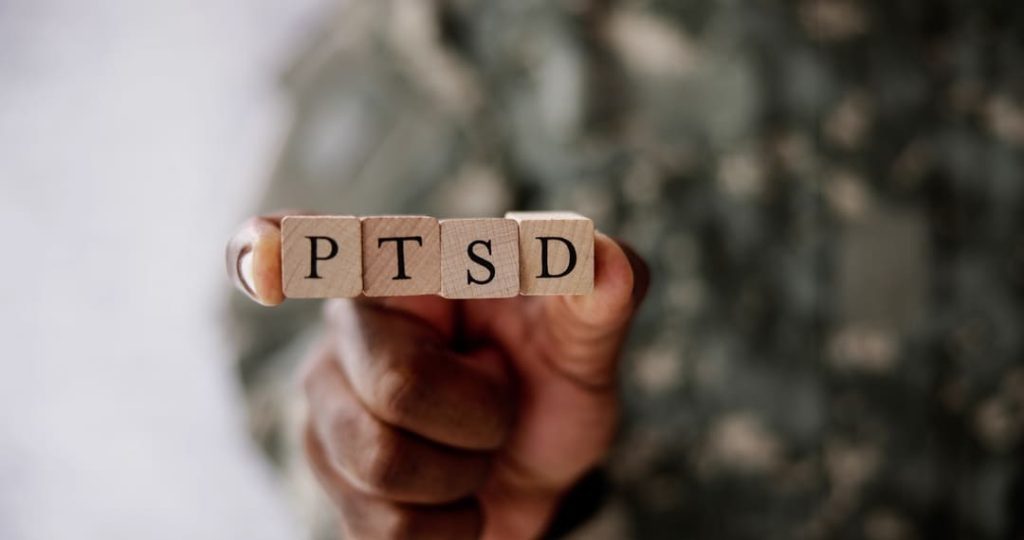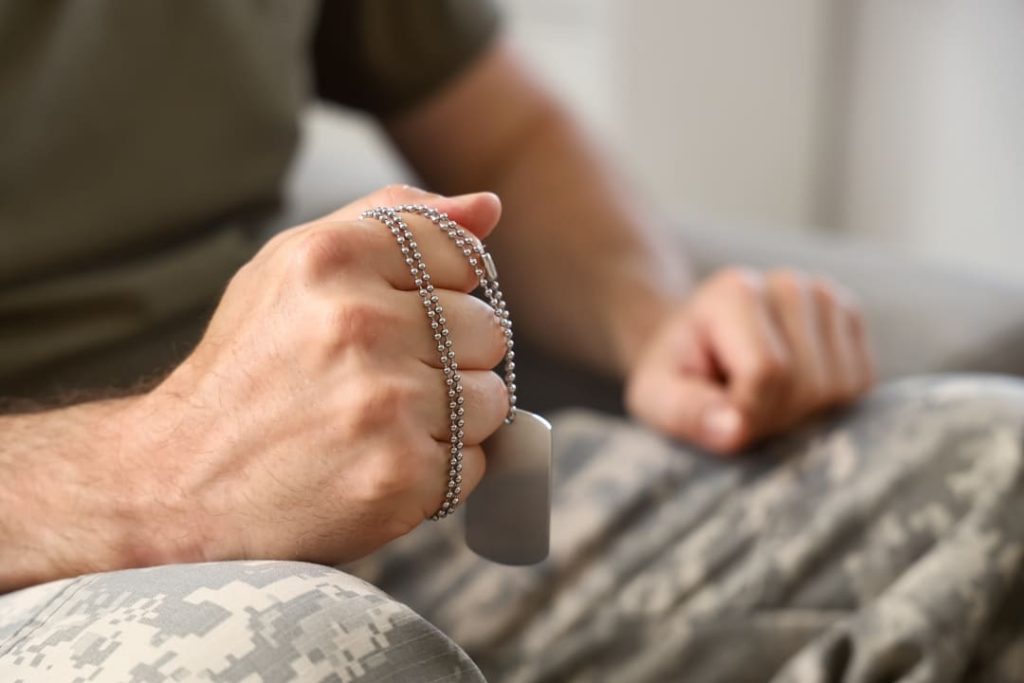Looking for Expert-Level VA Claim Answers?📱Call Us Now! 737-295-2226
We’ve compiled a list of PTSD resources for veterans and their families, all with valuable information to share. This list is a great place to start exploring PTSD support options.
Remember, your mental health matters.
Did You Know? According to the VA, an estimated 7% of veterans will have PTSD in their lifetime, with rates as high as 29% for those who served in Operations Iraqi Freedom and Enduring Freedom.
However, the National Library of Medicine estimates the percentage of veterans with PTSD to be closer to 13.5%, while other studies estimate the percentage of veterans with PTSD to be closer to 30%.
Additionally, as many as 500,000 US troops who served in Iraq and Afghanistan have since 2003 have been diagnosed with PTSD.
Although the statistics vary, all would agree it’s vital for sufficient resources to be provided and available to support veterans and their families dealing with PTSD.
Table of Contents

PTSD Resources
While this list is not exhaustive, it’s a great place to start. Keep in mind that you may find one that better fits your needs over another.
Veterans Crisis Line (Dial 988 and Press 1)
The Veterans Crisis Line is available 24/7, offering confidential support to veterans and their loved ones. You don’t have to be enrolled in VA benefits or healthcare to connect.
The three ways to connect with the Veterans Crisis Line are:
- By phone: DIAL 988 and PRESS 1
- Chat Online
- Text 838255
Vet Centers (Readjustment Counseling)
Vet centers offer community-based counseling, including various social and psychological services to service members and their families.
Services include counseling for needs such as depression, post-traumatic stress disorder (PTSD), and the psychological effects of military sexual trauma (MST). They can also connect you with additional support within the VA and your community. All services are strictly confidential.
You can visit a vet center location, utilize a mobile vet center, or reach out to the vet center call center at 1-877-927-8387.
Determine Your Vet Center Eligibility
The National Alliance on Mental Illness
The National Alliance on Mental Illness (NAMI) offers a Family-to-Family Education program for caregivers of people with severe mental illness.
You can call their HelpLine at 800-950-6264, text ‘helpline’ to 62640, or chat online for assistance or more information. In a crisis, call or text 988.
National Center for PTSD
The National Center for PTSD, a part of the VA, has online resources to help answer questions on PTSD-related issues.
REACH VA Program
Resources for Enhancing All Caregivers Health (REACH) VA Program supports veteran caregivers.
REACH offers individual and group coaching to help caregivers practice stress and mood management techniques, problem-solving, and foster positive thinking.
PTSD Foundation of America
The PTSD Foundation of America helps veterans and their families who are feeling the effects of combat-related PTSD.
They established Camp Hope, an interim housing facility for veterans working to heal their “invisible wounds.”
The PTSD Veteran Crisis Line is available 24/7 by calling 1-877-717-7873.
Military One Source
Military One Source helps connect service members and their families with resources for those diagnosed with PTSD.
While Military One Source doesn’t offer health care services, its website has information for navigating through the challenges of PTSD.
Military One Source has a 24/7 chat via telephone at 1-800-342-9647 or online.
Psychological Health Resource Center
The Psychological Health Resource Center offers 24/7 support for service members and their families.
You can connect with a staff member to discuss mental health symptoms and other questions one of these ways:
- Call 1-866-966-1020
They can help connect you with local community psychological health resources.
National Resource Directory
You can use the National Resource Directory to find information for over 10,000 services and resources supporting wounded, ill, and injured service members.
Give an Hour
Give an Hour is a non-profit organization offering free mental health services to U.S. military personnel and their families affected by Afghanistan and Iraq.
The three main areas of support offered are:
- Peer Support
- Workshops and Resources
- Mental Health Counseling
Real Warriors
Real Warriors offers mental health resources to service members and their families to decrease stigma and increase psychological health literacy.
The Department of Defense (DOD) campaign prioritizes early intervention and encourages access to appropriate mental health care.
You can chat live 24/7 with a trained psychological health resource consultant. Conversations are free and confidential.
USA Cares
USA Cares helps post-9/11 veterans and military families from all branches of service to help improve their quality of life while reducing potential factors that contribute to veteran suicide.
You can complete a veteran application to help determine eligibility.
Make the Connection
Make the Connection offers a place for veterans and their family members to talk about their experiences, challenges, and recovery.
It’s also a great resource for service members looking to connect with others of a similar background. You can tailor your video search by service era, branch, gender, and combat experience.
Resources for Children with a Parent Who Has PTSD
Veteran Service and Support Dogs for PTSD
- Freedom Service Dogs
- Semper K9
- NEADS.org
- Working Dogs for Vets
- 4 Paws for Patriots
- Paws for Purple Hearts
Job Assistance Programs
- USAJOBS
- Hire Veterans
- Veteran and Military Transition Center
- Veteran Readiness and Employment
- Veteran’s Employment and Training Service
- Feds Hire Vets
Most agencies have an SPPC or Selective Placement Program Coordinator dedicated to helping people with disabilities find jobs.

Conclusion
If you have experienced a traumatic event during your time in service and are now experiencing PTSD symptoms, be encouraged that help is available to you through the VA and additional resources.
Many veterans unknowingly experience PTSD long after they take off their uniform, affecting many areas of their life, including relationships with family and friends.
Do not hesitate to reach out if you need help. You’re worth it.

Kelly Olone
Kelly Olone is a military spouse who earned her degree in Psychology from Florida International University. After working in the non-profit sector for several years, she turned to her passion for writing. She aims to contribute to a better understanding of the valuable benefits that veterans deserve. As a mom, Kelly navigates the delicate balance between deadlines and bedtime stories with finesse.



